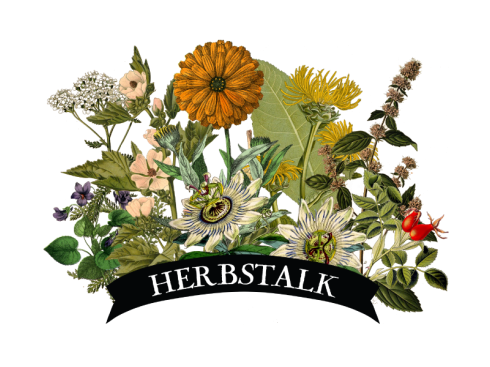|
Submitted by Henry Kesner of Herbstalk. In my previous post I reviewed the golden rule of living with an herbalist, “Don’t touch my herbs before asking.” In this lesson on herbal life I had mentioned that what I mistakenly removed from the stove top was ultimately deposited in our kitchen compost container. As most of us are aware, composting has increasingly become part of our urban culture here in the US (and of course has been a natural part of farms, villages and rural life for generations). It is an excellent way to return nutrient rich organic scraps and material back to the soil and jump start our gardens and landscapes for the growing season. Ever since moving to the city I have composted. The process is simple enough. I keep a small container near the kitchen sink and empty all of my organic food scraps, egg shells and other compostables into it. When the container filled up every few days or so I would carry it outside and deposit the material into a large garden composting bin outside. As you can imagine, the space of an urban garden in the Boston area is limited and there is only so much one can do with their compost during a given season. Despite space restrictions, I had the process down to an art…no, a science. Over the course of my city-hood experience I had established the perfect ratio of organic food consumption to rate of backyard compost decomposition. Each time I filled my sink-side container, the outdoor bin had been churned and ready to welcome additional material. By the time spring and summer passed I had the compost churned into a perfect mix that was ready to be spread into my garden beds before winter, thus prepping the space for the following season. It was a thing of beauty. This was until the herbalist moved in. That once to twice a week trip to the outdoor compost bin quickly turned into a daily (sometime hourly!) ritual as I was carting out bucket by bucket-load of wet, dry, pressed, and chopped plant parts. One compost bin became two and the outdoor container filled beyond any semblance of peace and balance. It had exploded into a cornucopia of exhausted herbs. My perfect compost routine was thwarted and no longer was I able to keep pace with the herbalists’ herb scraps. But there is a happy ending to my tragic tale. The pounds and pounds of herbal teas and coffees and plant parts not only added a lovely, masking aroma to the compost heap but quickly turned the matter into rich soil that a true farmer could only dream of. By spring the compost developed its best consistency to date (minus a few rogue avocado pits…stop that please!) and the resulting mix helped produce my/our most vibrant backyard urban garden to date. Guess those herbs had some life left in them after-all. As a takeaway, by living with an herbalist not only will your compost pile grow, so will the beauty and complexity of your garden. Just buy/make a few more bins to handle the volume. You are going to need it…  Henry Kesner is a founding member of Herbstalk, where he brings his event & operations management skills to the planning committee. For Henry, Herbstalk is a perfect way to educate a wide audience about the power, use, and wonder of the plants that surround us on a daily basis. Comments are closed.
|
Archives
November 2023
Categories
All
|
Join the Newsletter!
Receive news about future Herbstalk events
Thank you!
You have successfully joined our subscriber list.
Copyright © Herbstalk 2024

 RSS Feed
RSS Feed